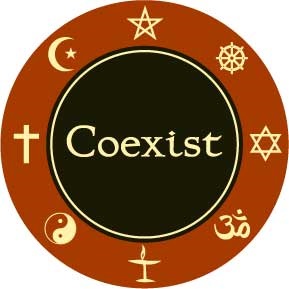
It is widely heralded that there is a well-founded correlation between religious beliefs and behavior, and what matters is how people use or misuse such an influential instrument, and to what extent they let it influence their demeanor. Equally, however, religion is not the sole factor that influences comportment as it is an important factor in a pool of other factors like genetics, environment, parenting, drives, and needs for determining one’s manner.
The northern part of Ethiopia especially Wollo can be cited as a very good example in this regard. When peaceful coexistence in general and religious synchronicity in particular is a point of discussion, there are a number of places including the aforesaid one with convincing justifications to well confirm concomitance and other related facts. Taking this core idea into account, this writer approached Musa Yimer, a Sheikh coming from Kelela, North Wollo Zone of Amhara State, to find the truth from the horse’s mouth.
He said, “If Muslims plan to build a mosque, all members of the Christian community around go out to contribute what is expected of them and make the plan a reality. In the same way, if Christians are in a position have a church, Muslims come at the forefront to give the church life. Is there anything more mesmerizing and apt than this? one to root a harmonious way of living? This is an eternal peaceful coexistence from which many can draw influential lessons!”
If one wants to draw important lessons from Ethiopia in terms of religious tolerance, they are advised to visit the North as tolerance and peaceful coexistence in Ethiopia has long been a viable weapon to assimilate life and nurture religious, cultural and collective values.
He further stated that Ethiopians have drawn important lessons out of the mistakes they have been through and no one will use religion as a leeway to fuel antagonistic sentiment among citizens hereafter. According to Musa, historically, religion has been among the most powerful agents for changing human attitudes and behavior. Though religion has its own limitations, there is still a potential for harmony among the people of the Horn and East Africa let alone Ethiopians who have been well spiritually shaped.
He also elucidated that most scholars agree that Ethiopia is a unique country especially in terms of inter-religious relations. Relations, especially between Arabs and Abyssinians in trade, culture and religion reach back to ancient times. All religions came to Ethiopia and co-existed in mutual relationship with one another. This has made Ethiopia a unique place for all types of encounters, including peaceful relations, respect and tolerance in exchange of ideas and practices.
“Ethiopia is one of the few countries mentioned by name in the scriptures. For instance, in the Psalms of David; there is a verse reads, ‘Ethiopia shall raise its hands unto the Lord.’ In a similar way, Prophet Mohammed ordered his persecuted followers to seek asylum in Ethiopia, a land of justice, peace and with hospitable citizens. They were indeed received with dignity and given protection. These are instances showing the uniqueness of Ethiopia. Thus, Ethiopia was known since ancient times as a land of peace and religious tolerance,” Musa stated.
According to Sheikh Musa, the principle of equality fully acknowledges, the differences among various religious tenets and accords legal protection in Ethiopia, too.
Under the concept of religious tolerance, followers of different religions should live in harmony with one another; accept religious diversity, to the extent of working together for common goals as tolerance is harmony in other words. As a diverse society, Ethiopians have to continue the process of going towards a shared future. Such a process should be inclusive, broad and deep and will certainly demand some shifts in attitudes, behaviors, aspirations, and even beliefs, Musa opined.
Ethiopia is in a process of social change and the faith communities play a great role both in the spiritual and development aspects to effect the change, which has been well run throughout the country.
Religious institutions have a unique role in influencing and disseminating relevant and timely information to their respective congregations and lifting up the needs and concerns of their followers and relevant stakeholders. Based on the moral values of faith communities, the youth should be given primary attention so that their fresh energy and potential can be used for constructive purposes, as to Sheikh Musa.
As to him, every religion has to pay a particular attention to the golden rule that binds different faiths together for a common good. “Treat others as you would want them to treat you in everything.” This plainly indicates that mutual understanding and coexistence play a significant role in nation-building. This has to be advocated extensively and share experience with other African countries and beyond.
“It is in the spirit of compassion, mutual understanding and commitment to peace, as inspired by our respective understanding of truth and common existence in all its diversities that we Ethiopians work towards meeting noble goal of peace and development,” he added.
He said, “All Ethiopians pledge to maintain their alliance and collaborations as they make efforts to make Ethiopia more tolerant and peaceful. “We have to be sensitive to the particularities of the teachings of respective religious traditions, and, at the same time, acknowledge our commonalities as well as our responsibility to build bridges among our religious communities across our region and beyond in the interest of peace and peaceful co-existence. May Peace Prevail on Earth, on Africa, on Ethiopia?”
Undeniably, religions influence people’s conduct and determine their actions. Beliefs that are widely accepted become part of societal culture and in a multifarious means shape the society. Needless to say, there are many sacred approaches, codes of conduct, rule books that allow believers to function in a non-primitive or cultured manner as they were established to facilitate social bonding and communal coexistence.
“It is not surprising that religion oriented personalities play a vital role in identifying self-identity and collective identity of a given community, which then shapes attitudes, cultural norms, well oriented devotees that have been greatly influencing individual and group behaviors,” he added.
As to Sheikh Musa, in most cases, though not all doctrines have some thematic principles that make them similar to one another, namely concepts of God/Allah and love, honesty, altruism, miracle workings and appeasement, religions in general gallop towards doing good.
In simple terms, as learnt from Sheikh Musa, “Religions could by no means be buffers for infiltrators and anti-peace elements to root a rival sentiment among followers of different faiths as Ethiopia has been prettily known for its age-old coexistence among its people regardless of social status, place of origin, gender and tribal or clan belongings etc.”
Sheikh Musa further stated that most religions enforce moral behavior through positive and negative reinforcement by infusing ‘God-fearing’ elements in scriptures, such as the concept of heaven and hell in a comparative approach. Besides, the religious scriptures or rituals act as a moral reminder, through priming, and impel people to act in a moral and honest manner.
“So long as Ethiopia is rich in a disciplined, Allah/God-fearing generation, responsible and who have sympathetically cared fellow citizens of all walks of life, providing conflict entrepreneurs with loopholes, fertile grounds for conflict and odd ideologies that potentially exacerbate contention among citizens everywhere in the nation has to be excellently condemned to make a peaceful, prosperous and all-inclusive motherland,” he advised.
BY MENGESHA AMARE
THE ETHIOPIAN HERALD SUNDAY EDITION 9 JANUARY 2022





